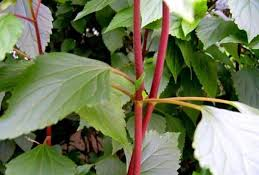These days, people can travel easily.
現在,人們可以輕易旅行至其他地方。
But that means plants, animals and germs can travel easily, too.
不過,這表示植物、動物和細菌也能夠輕易前往其他地方。
Living things from foreign countries can be dangerous.
來自外國的生物可能很危險。
They can hurt a country's native plants and animals.
他們有可能傷害一個國家的原生植物和動物。
So countries must protect themselves.
所以,每個國家必須保護自己。
When people go into a country, they go through customs.
一般人進入一個國家的時候,都必須通過海關。
Customs officers check their bags. They ask people about food.
海關官員會檢查他們的袋子,問他們有沒有攜帶食物。
People cannot bring any fruit or meat into the country.
一般人不能帶水果或肉類進入一個國家。
Some travelers don't like these rules. They want to bring food home with them.
有些旅行者不喜歡這類規則。他們想把食物帶回家鄉。

They think a little fruit or meat can't hurt anything. But germs can spread quickly.
他們認為一點水果和肉類不會造成任何傷害。但細菌有可能散播得非常快。
Then they can hurt a country's farms.
如此一來,就可能對一個國家的農場和農作物造成傷害。
So people should obey the rules.
所以,大家都應該遵守規則。
If people want to bring in food products, they should ask customs.
如果有人想帶食物產品入境,就應該詢問海關。
Plants and seeds are also a problem.
植物和種子也是個問題。
Non-native plants can hurt native plants.
非原生種的植物有可能對原生植物造成傷害。
Some non-native plants will grow very quickly and spread fast.
有些非原生植物生長的速度非常快,擴散的速度也很快。
They can kill the native plants. That can hurt the animals that eat those native plants.
這些植物可能會殺死原生植物。就可能對吃這些原生植物的動物造成傷害。
Bringing non-native plants and animals into a country is never a good idea.
把非原生植物與動物帶進一個國家絕對不是好主意。
It is important to be careful when you travel.
旅行的時候一定要小心。











